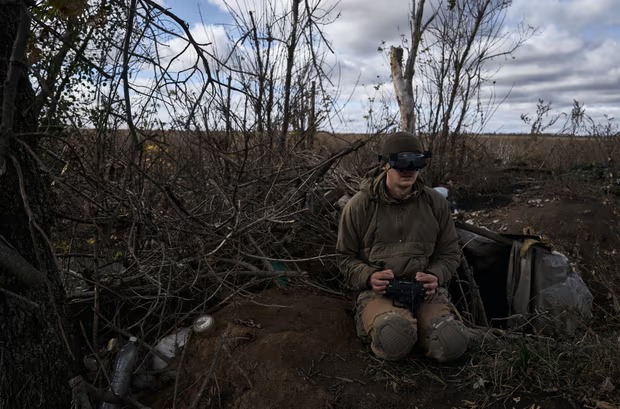As the Russia-Ukraine conflict enters its 609th day, the situation remains highly fluid and marked by moments of resilience and international support, contrasted with ongoing struggles in the region. Ukrainian President Volodymyr Zelenskiy has emphasized his country’s unwavering determination to regain control of Crimea, while Russian forces continue their relentless assault on Avdiivka.
Zelenskiy’s Resolve to Reclaim Crimea
President Volodymyr Zelenskiy reaffirmed Ukraine’s commitment to regaining control over Crimea during a meeting of the Crimea Platform, a diplomatic initiative he launched in 2021. He emphasized that while full fire control over Crimea and its surrounding waters had not yet been achieved, it was merely a “question of time.” Zelenskiy’s resolute stance serves as a testament to Ukraine’s unyielding determination in the face of adversity, as the conflict persists.
International Aid and Support
Australia announced a significant military assistance package worth A$20 million (approximately $12.8 million) to Ukraine, including a 3D metal printer and anti-drone systems. Prime Minister Anthony Albanese reiterated Australia’s unwavering support, stating that his nation stands with Ukraine in defending itself against Russia’s “illegal and immoral invasion.” This contribution takes Australia’s total aid to Ukraine to about A$910 million ($582 million) since the onset of the conflict. Moreover, Albanese is expected to discuss the ongoing Ukraine conflict with U.S. President Joe Biden during his state visit to the United States.
Moldova took a firm stance by blocking access to over 20 Russian media websites, alleging their involvement in an information war against the country. Prominent news resources such as Russia Today, NTV, and state media holding VGTRK were among the blocked websites. This move by Moldova’s Intelligence and Security Service, however, drew criticism from the Russian foreign ministry, which referred to it as a “hostile step” aimed at denying Moldovans access to alternative news sources. Moldova had previously restricted TV broadcasts of Russia-produced news and military-related content in June 2022 following Moscow’s invasion of Ukraine.
Ongoing Struggles and Evolving Dynamics
In the war-torn regions, the conflict’s brutality continued to take its toll. Russian forces switched from ground advances to air attacks in Avdiivka after heavy losses, underscoring the intensity of the battle. Tragic reports emerged of two civilians killed in an artillery strike near Kupiansk, a town recaptured by Ukraine after initially being seized by Russia. Reports also suggested successful artillery and air strikes near Bakhmut, a town captured by Russian forces in May. Verification of battlefield activities on both sides remained a challenge for international observers.
The United States House Republicans’ struggle to elect a speaker left President Joe Biden’s request for Ukraine aid in limbo, highlighting the political complexities intertwined with international support efforts.
Ukraine, on the other hand, took proactive steps to enhance its defense capabilities, establishing a joint defense venture with German arms manufacturer Rheinmetall AG. The initiative aimed to service and repair western weapons provided to Ukraine in its fight against Russia’s full-scale invasion. Ukraine’s Prime Minister, Denys Shmyhal, called upon Germany to provide an additional €1.4 billion to strengthen air defenses and help the nation endure another winter of conflict.
Lastly, the European Commission reported progress towards ending the European Union’s reliance on Russian fossil fuels within this decade, marking a significant shift in the continent’s energy strategy.
In this ever-evolving conflict, the resolve of Ukraine, international support, and ongoing challenges create a complex tapestry that continues to shape the course of events in the region. As the conflict enters its 609th day, the world watches with anticipation and concern for the developments that lie ahead.















